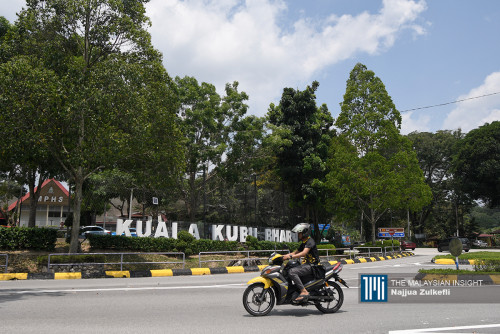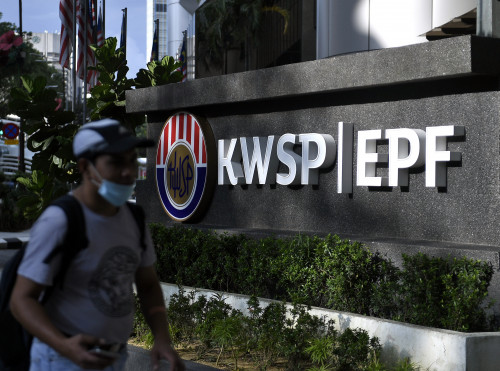.png)
I READ with great interest the story that private hospitals are prepared to help the government inoculate people against Covid-19 – and here’s the curious part – by disseminating the vaccine without charge. Yes, you read that right.
But if the government is not careful, it may end up giving private hospitals windfall gains of over half a billion ringgit, as we shall show.
It was reported that this will be for vaccines procured by the government, with private hospitals appointed as implementers of the free jabs.
Association of Private Hospitals Malaysia president Datuk Dr Kuljit Singh said even if these hospitals are allowed to procure the vaccines, they will be administered at the cost of procurement.
“We will not impose any surcharge for the inoculation. We will buy on-demand, whatever the cost, and that is the only amount people will have to pay, as we are not out to make any profit.”
Is there a catch here? If the government actually uses private hospitals, will it be totally free of charge?
Does it mean that the person who gets inoculated does not pay a sen? If indeed that is true, then let them do it. But, things are not likely to be that straightforward.
If you have been billed by a private hospital, you know there are lots of special charges. I would be very suspicious if a private hospital offered free treatment.
Let me relate to you a personal experience I had, in fact, where Dr Kuljit is medical director. Yes, Prince Court Medical Centre.
I needed to get tested for Covid-19 to be with my wife, who was going to have a minor operation there. I was told that I could get a test at Prince Court for RM175 – it is called the “companion Covid-19 RTK Ag test”. I went for the test.
But, there was an additional fee – RM50 for registration, a three-minute process. I protested, my blood pressure shot up. I said I’m not a patient of the hospital, and I don’t want to register. Just give me the test. No, sir, we can’t, that is procedure. Yes, they always kill us – our arguments, I mean – with that one word: procedure.
I registered a complaint with the counter staff, and asked them to get the hospital authorities to call me. Now, as I write this three days later, no one has called me. That RM50 increased my cost by almost 30%.
Later, I checked, and found that you can buy this same test through the Social Security Organisation (Socso) – of which I am a member – for just RM45. The RM175 I paid for the same test is nearly four times as expensive.
For the Socso deal, your employer has to apply on your behalf to get the test at a Health Ministry-approved clinic. At the same time, Bukit Gasing assemblyman Rajiv Rishyakaran has spearheaded an affordable testing initiative, where one pays only RM70 per test.
Now, the Covid-19 vaccine. Let’s see how “procedure” will change the equation. OK, you don’t pay for the vaccine at a private hospital, but most likely, you have never been a patient there before – most people have not.
The “procedure” is that you pay RM50 to be registered as a patient before you get the jab – they also get your personal records, which they can use for marketing and other purposes.
Let’s see the impact of this on private hospitals. The target is for 26 million Malaysians to be inoculated. Assume that 40% are inoculated by these hospitals – that’s 10.4 million people. They each pay RM50 – for registration, of course – making for a total of RM520 million!
The costs incurred by private hospitals for this are next to nothing for them, giving a combined profit of more than half a billion ringgit; hardly chicken feed.
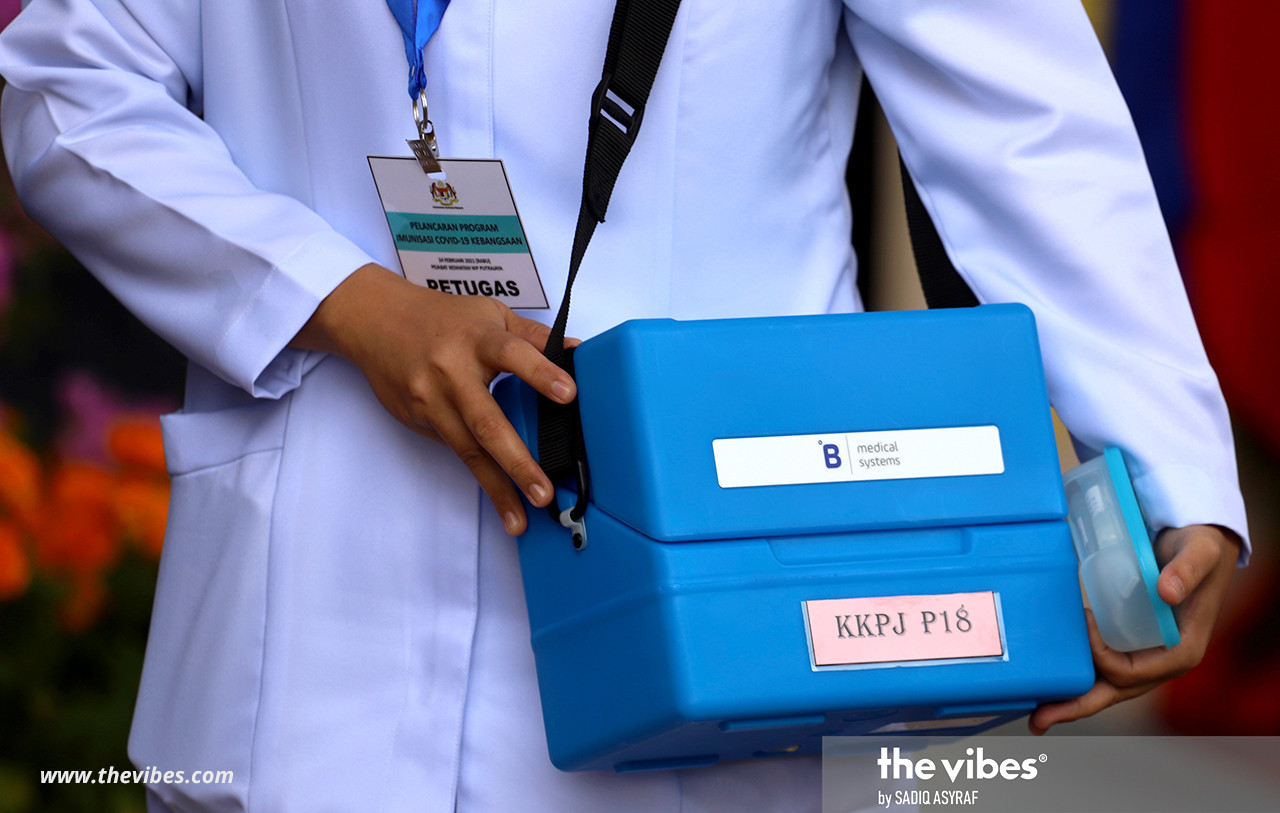
Now we understand why private hospitals are eager to administer the doses for “free”. The government must ensure there are no additional charges. Period. Or, keep private hospitals out of this.
And, there was the problem of charging for masks used for Covid-19 prevention in May last year. RM11.20 for a mask? You’ve got to be kidding, right?
No.
Here’s what Dr Kuljit and Prince Court said when defending this: “What we realised is, ministries and the public do not understand how private hospitals are run, and how we sustain expenditure and stay afloat. We also want to emphasise and explain to the ministry that private hospitals are not retail outlets. We are healthcare service providers.”
Really? We understand that as service providers and people who buy in bulk, you can buy supplies at a much lower price, which will do the job efficiently. How can you justify charging 11 times the retail rate, especially since you are charging for everything you provide?
We have it on good authority that the hospital involved was Prince Court.
If you have had occasion to go to a private hospital, you will know that in general, the charges are exorbitant, and there is an add-on charge for every little thing, at several times the cost of procurement. I am not exaggerating.
Since I was at Prince Court and had already paid the registration fee, I thought I would seek treatment for a minor ailment – and I regretted it. I had my temperature taken, as part of the treatment, by a specialist. They charged RM1.60 for an ear-probe cover and RM27 for an assisting specialist – basically, a nurse who assisted the doctor. And, a specialist first consultant fee of RM235 for 15 minutes of consultation – with no medication given or special equipment used. And, a further registration fee of RM5. I paid a princely sum of RM268.60 for that brief consultation.
Prince Court used to be owned by national oil corporation Petronas before it was sold to Khazanah Nasional Bhd in September 2018. It was sold to IHH Healthcare, a company related to Khazanah, for just over RM1 billion last September. Users have noted sharply escalating prices since the sales, with hospital charges exceeding those of doctors by several times, even for minor procedures.
If you ask me, and if I were making the decision on whether to allow private hospitals to inoculate the public against Covid-19, I will make sure that it does not cost anything at all – no registration fees, no assistant costs, no doctor’s charges, no charges for syringes or saltwater used for rinsing (I kid you not) – nothing, nothing of that sort. It will be absolutely free of charge, or no deal.
Between the health insurance people who scrutinise and decline to pay various charges, and private hospitals that charge for every single thing under the sun, users are, pardon the language, sandwiched and screwed. Except for the very rich, of course, who, pardon me again, don’t give a s***.
There’s a lot of work to be done, and the rationalising of charges, by which I mean a regulated, drastic reduction in charges before the private hospital system, plays its true role in supplementing and relieving the badly stretched national hospital system.
Otherwise, it will evolve to become a health provider for only the super-rich, much like private healthcare systems in developed countries, pushing it beyond what the middle class can afford, and skewing medical care.
A health commission needs to be set up to manage both health providers and insurance companies that provide health coverage. This is badly overdue, and one hopes this health minister, who has so far shown himself to be inept, will do something about it. – The Vibes, March 11, 2021
P. Gunasegaram says health is wealth – for private hospitals and insurance companies, that is. He is editorial consultant of The Vibes and executive director of Sekhar Institute



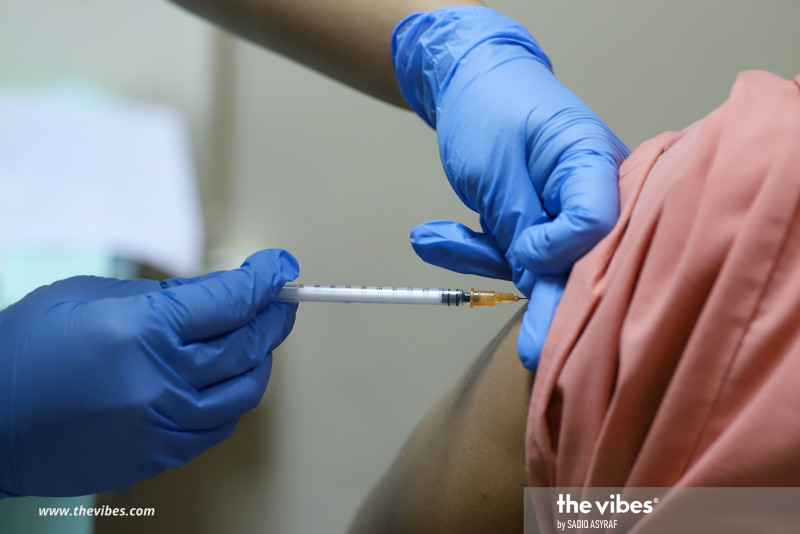
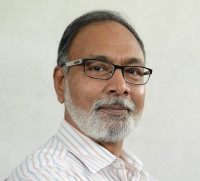
_and_Mariammah_Krishnan_(right._back-row__far_left).png)
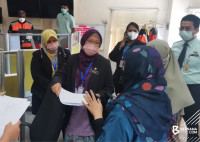
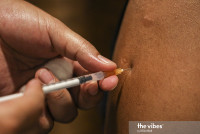

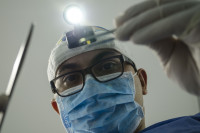
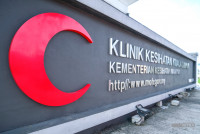

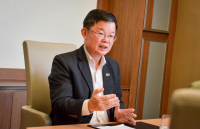

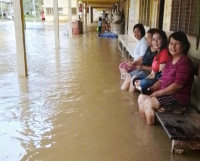

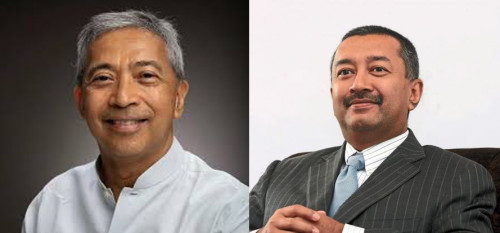
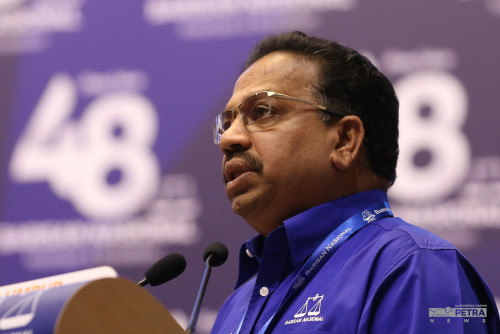
.jpg)

